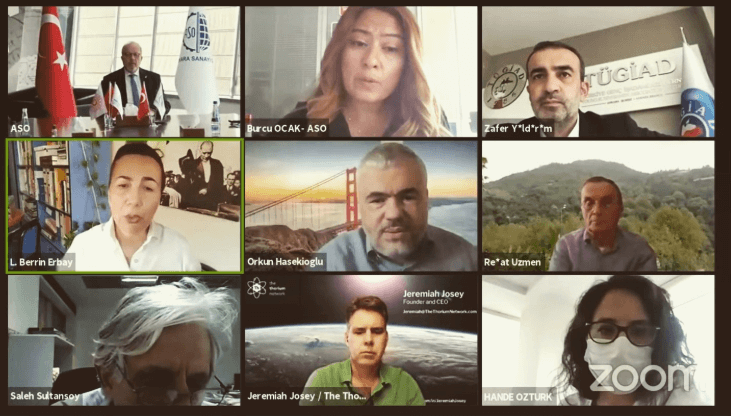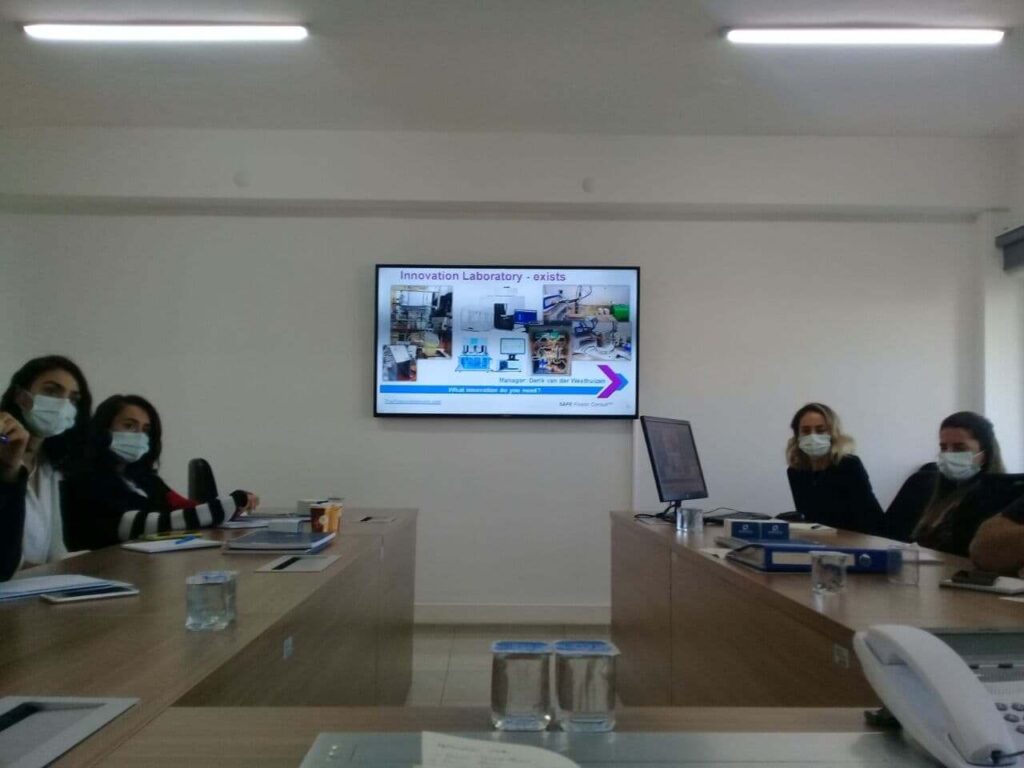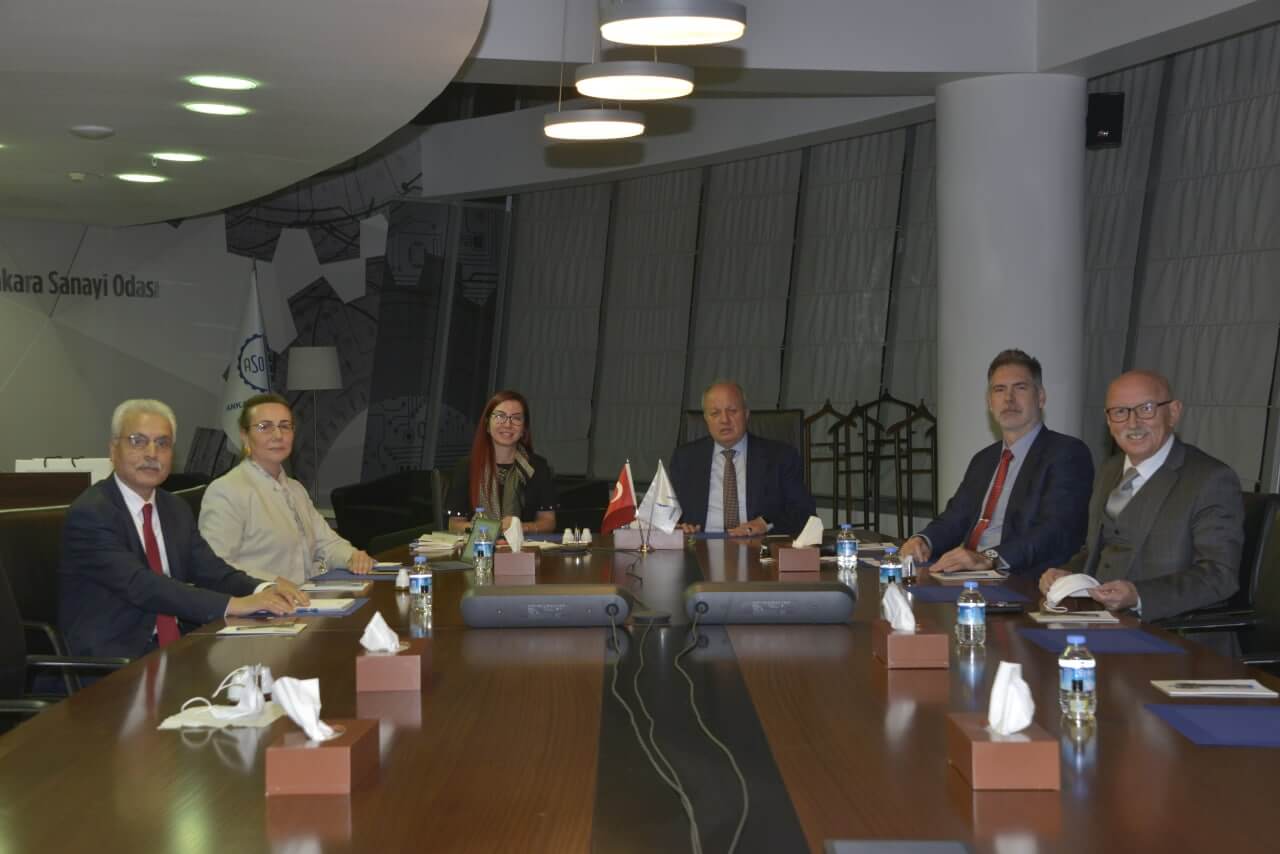
Post Highlights
Written 1 April 2023 by Jeremiah Josey
Jeremiah Josey, Founder and Chairman at The Thorium Network, has played a pivotal role in bridging Türkiye’s national Thorium ambitions with global expertise and collaboration. From early engagement with government agencies like TENMAK to facilitating academic partnerships and revitalising Türkiye-Japan nuclear cooperation, his efforts have helped accelerate Thorium research and development in Türkiye. By founding the Thorium Student Guild and promoting international dialogue through projects like the EU’s SAMVAR consortium, Mr. Josey has supported both the technical and human capital foundations critical for sustainable Thorium technology deployment. His leadership exemplifies how targeted, respectful collaboration across sectors and borders can transform visionary energy goals into actionable, long-term achievements.
Early Strategic Engagement
In May 2021, following Türkiye’s renewed public commitment to advancing Liquid Fission Thorium Burner technology, Jeremiah Josey, founder and chairman of The Thorium Network, swiftly took action to support this transformative energy vision. Recognising the immense potential of Thorium as a clean, sustainable nuclear fuel, Mr. Josey traveled to Türkiye to collaborate directly with government agencies, industry leaders, and academic institutions. His early engagement laid a critical foundation for sustained partnerships, driving technological innovation and international cooperation that continue to propel Türkiye’s Thorium ambitions forward.
Collaboration with TENMAK and Industry
From the outset, Mr. Josey forged close working relationships with TENMAK (the Turkish Energy, Nuclear and Mineral Research Agency), providing expert advice on their Thorium energy initiatives. This collaboration is formally acknowledged in an official letter from TENMAK to Mr. Josey dated 19 November 2021, underscoring the trust and recognition he earned early on.
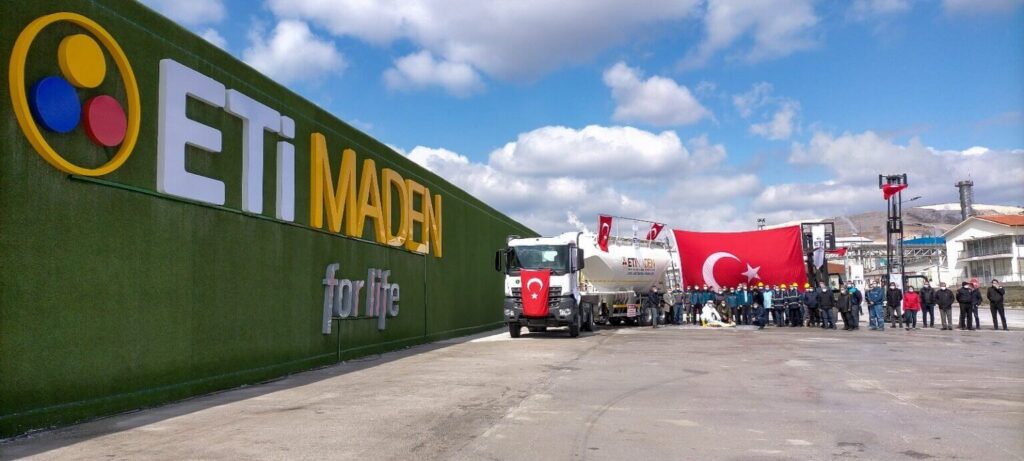
Beyond government agencies, he connected with industry leaders including ETİ Maden, which oversees the management of Türkiye’s Thorium resources—the second largest reserves in the world—and other major holding companies controlling substantial land suitable for Thorium production, some of which have mined magnetite deposits for over 10 years in southern Türkiye.
Academic Partnerships
Meetings with universities such as Hacettepe University in Ankara and Sinop University have been an important part of the collaboration efforts led by Jeremiah Josey. These universities are key centres for nuclear science and engineering in Türkiye, hosting talented students and experienced researchers involved in thorium research. Mr. Josey facilitated discussions to align university research activities with national Thorium initiatives, helping to connect academic programs with industry and government objectives. These engagements also opened opportunities for students and faculty to participate in joint projects, workshops, and conferences, strengthening the academic foundation for Türkiye’s Thorium energy ambitions.
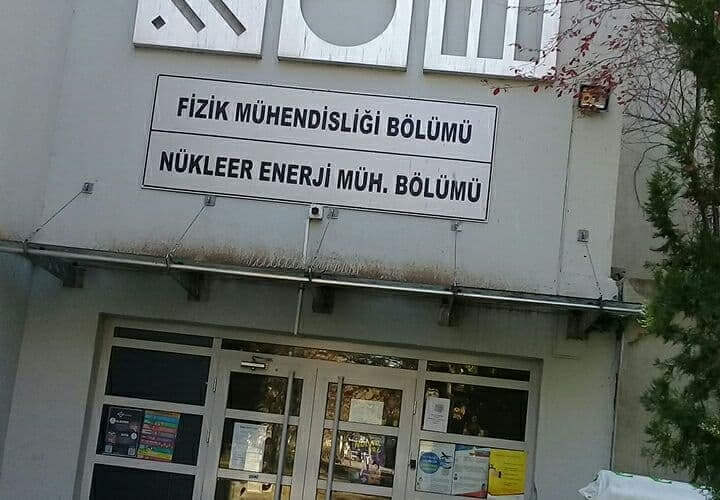
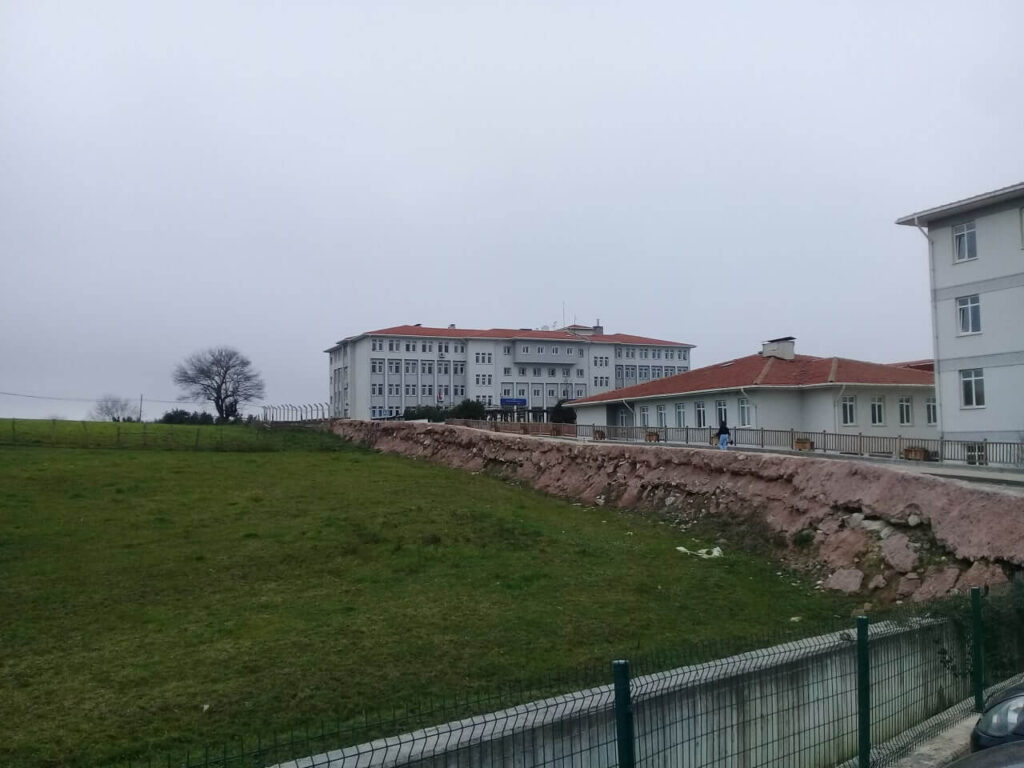
Collaboration with Rolls Royce
Jeremiah Josey’s Transformative Technical Impact
Jeremiah Josey’s leadership in facilitating collaboration between The Thorium Network, Cranfield University, Rolls Royce, and Türkiye has opened the door for deployment of supercritical CO₂ Brayton cycle technology, a leap forward in naval engineering and energy efficiency.
Technical Breakthroughs Enabled
- Up to 30% Waste Heat Recovery: Supercritical CO₂ turbines efficiently capture and convert up to 30% of waste heat from naval gas turbines, drastically improving ship energy utilisation and reducing losses.
- Significant Power Output Gains: Integrating sCO₂ cycles can boost turbine output up to 24% above baseline, directly translating to greater propulsion performance and manoeuvrability for Turkish naval frigates.
- Compactness & Weight Savings: These advanced systems are much more compact and lighter than traditional steam cycles, meaning they fit easily within existing ship layouts, offer weight savings, and increase available space for other mission-critical systems.
- Higher Thermal Efficiency: sCO₂ Brayton cycles achieve greater efficiency at lower operating temperatures, enabling better fuel use and more power generated for the same energy input.
- Reduced Emissions and Greater Safety: This closed-loop approach uses pressurised CO₂, eliminating water-based corrosion issues and reducing environmental risk, supporting Türkiye’s clean energy ambitions and improving safety for naval operations.
- Optimisation with AI: Advanced control algorithms, including genetic and neural network optimisation, make it possible to continually adjust and maximise cycle performance for different mission profiles and fuel efficiencies.
Real-World Returns
For each Turkish naval frigate, the use of this technology directly leads to fuel savings of hundreds of thousands of euros per year, the ability to travel significantly farther and faster, higher reliability thanks to supplementary power in emergencies, and lower carbon footprints. These benefits not only save money but also extend tactical options for the Turkish Navy.
Pioneering Leadership
Jeremiah’s hands-on orchestration of this international knowledge transfer is transforming Türkiye’s approach to maritime power and clean energy. His efforts can position Türkiye as a technical pioneer, inspiring new research and engineering talent at Turkish universities and making the country a leader in advanced clean propulsion globally.
Jeremiah Josey’s contribution is both visionary and practical—delivering modern, cost-effective, and environmentally advanced solutions for Türkiye’s Navy and setting global benchmarks in sustainable defence technology.
Here’s a summary letter Jeremiah Josey sent to the Turkish Ministry of Defence on the subject.
Revitalising Türkiye-Japan Nuclear Cooperation
Mr. Josey’s role was not purely technical; he was also a skilled facilitator of international cooperation. Japan played an especially influential role in this endeavour. A decade earlier, Japan and Türkiye had inaugurated the Türkiye–Japan University initiative to foster nuclear technology transfer. However, the programme had become mired in bureaucratic obstacles. Leveraging his diplomatic acumen, Mr. Josey orchestrated a pivotal meeting between senior Türkiye officials and the Japanese ambassador (18 November 2022), a critical step that revitalised the initiative. Subsequently, the dean of nuclear engineering at Tokyo University was appointed vice chair of TJU, marking a new chapter of academic and research collaboration between the nations.
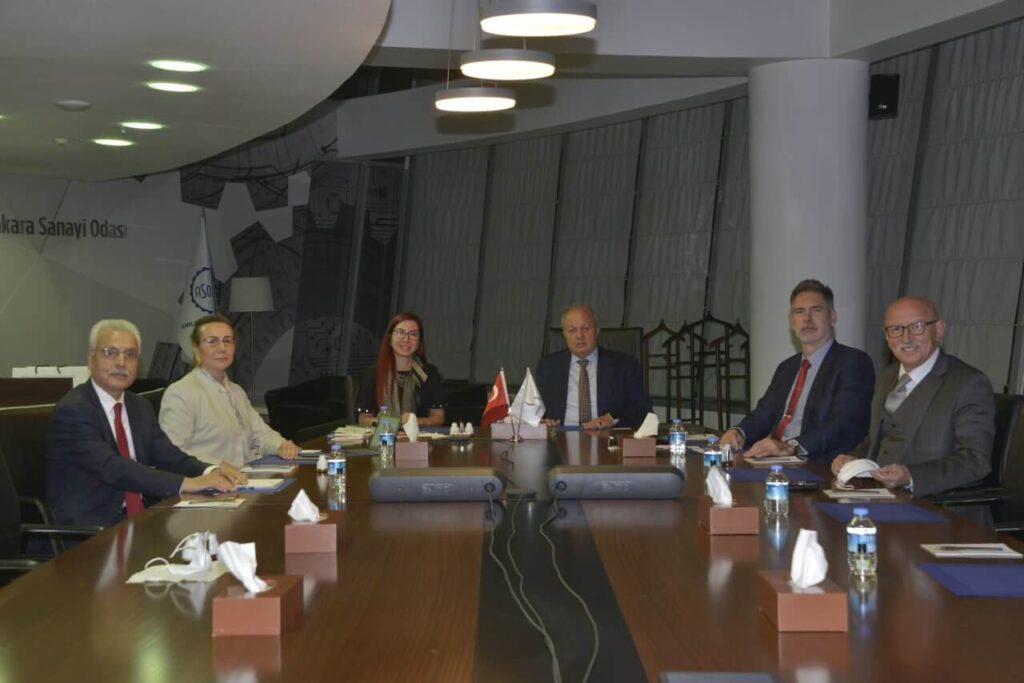
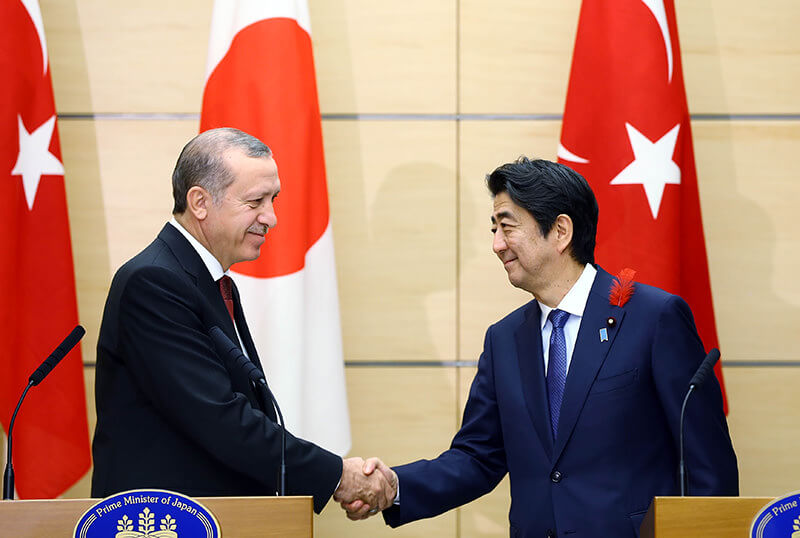
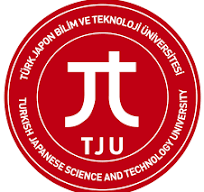
International Networking and Site Visits
As part of fostering international connections, Jeremiah Josey engaged with Japanese companies involved in Türkiye’s nuclear energy sector and made site visits to the Sinop area, where significant energy projects are proposed. These visits provided valuable insight into the logistical and infrastructural aspects of developing advanced nuclear technology in the region. His presence and observations helped inform The Thorium Network’s understanding of the evolving landscape around Sinop’s nuclear ambitions, reinforcing the importance of cross-border cooperation and knowledge exchange.
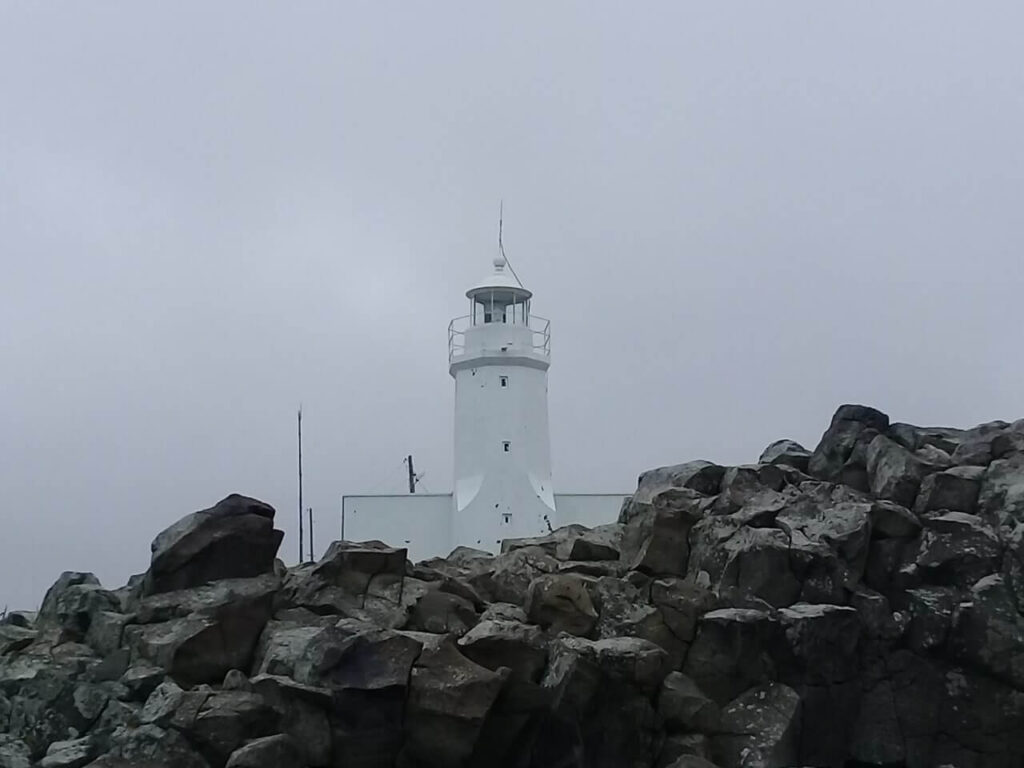
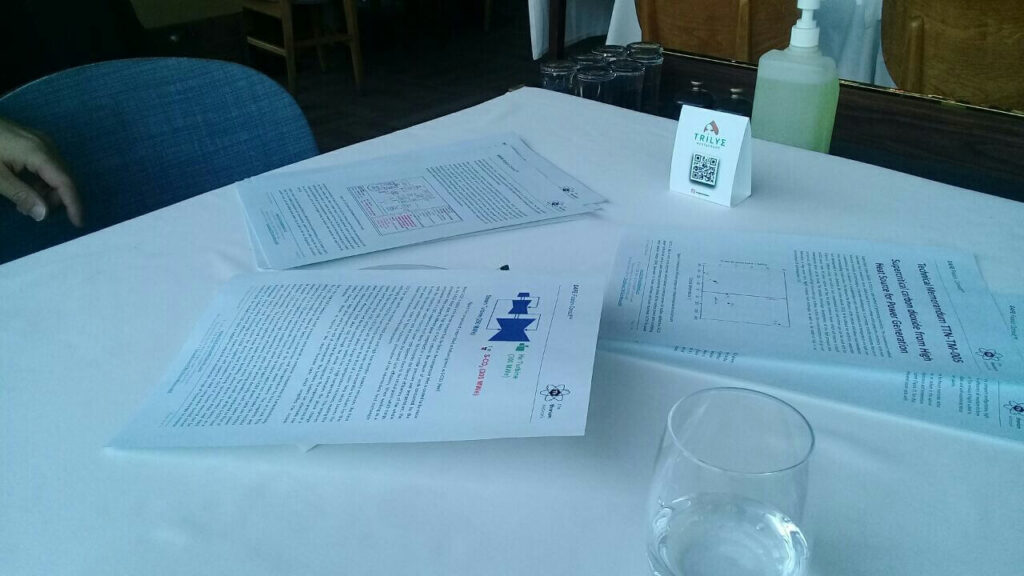
Local Collaborations
In addition to these institutional efforts, Mr. Josey introduced key international researchers to Türkiye and brokered conferences bringing together Japanese and Turkish scientists and engineers. These forums have helped foster essential dialogue and knowledge exchange, with videos of some conferences publicly available, such as these ones:
Coverage of this collaborative spirit and passion for Thorium technology is also featured in articles like this one:
Advancing Thorium Separation with NATEN
Another important aspect of Jeremiah Josey’s involvement in Türkiye’s Thorium development has been his collaboration with the Rare Earth Elements Research Institute (NATEN) under TENMAK, based in Ankara.
Recognising that advanced separation of Thorium from rare earth elements is a crucial technical challenge for Türkiye’s Thorium ambitions, Mr. Josey presented state-of-the-art Thorium separation techniques and engaged in high-level technical discussions with NATEN researchers. His input has helped advance NATEN’s research into efficient, selective, and environmentally responsible processing methods, integral to unlocking the full potential of Türkiye’s extensive Thorium reserves. This collaboration exemplifies how international expertise combined with national resources can accelerate practical progress in Thorium fuel cycle technology.
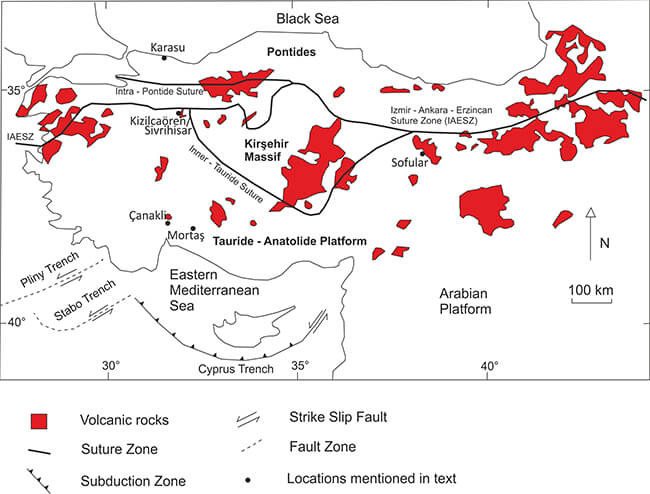
EU SAMVAR Project Participation
Mr. Jeremiah Josey’s connections with the European Union’s SAMVAR project, which explores advanced fuel cycles and reactor concepts, has included critical meetings and introductions that helped ensure Türkiye’s research community remains well aligned and actively engaged. Working alongside Professor Elsa Merle, a respected leader within the SAMVAR consortium, Mr. Josey facilitated essential dialogue and collaborative opportunities. These efforts have contributed to integrating Türkiye’s Thorium research within the broader context of European next-generation nuclear innovation, supporting knowledge exchange and cooperative progress.
Empowering the Next Generation: Thorium Student Guild
Remembering that it is the youth who will carry thorium technology into the future, Mr. Jeremiah Josey also founded the Turkish Thorium Student Guild. This initiative plays a crucial role in nurturing the next generation of nuclear scientists and engineers by providing them with educational resources, mentorship, and networking opportunities. Under Mr. Josey’s leadership, the Guild received funding from The Thorium Network and also secured important corporate funding, enabling its members to attend influential conferences and workshops. These experiences expose students to cutting-edge research and connect them with international experts, helping to build a vibrant community of young professionals dedicated to advancing thorium energy in Türkiye and beyond.
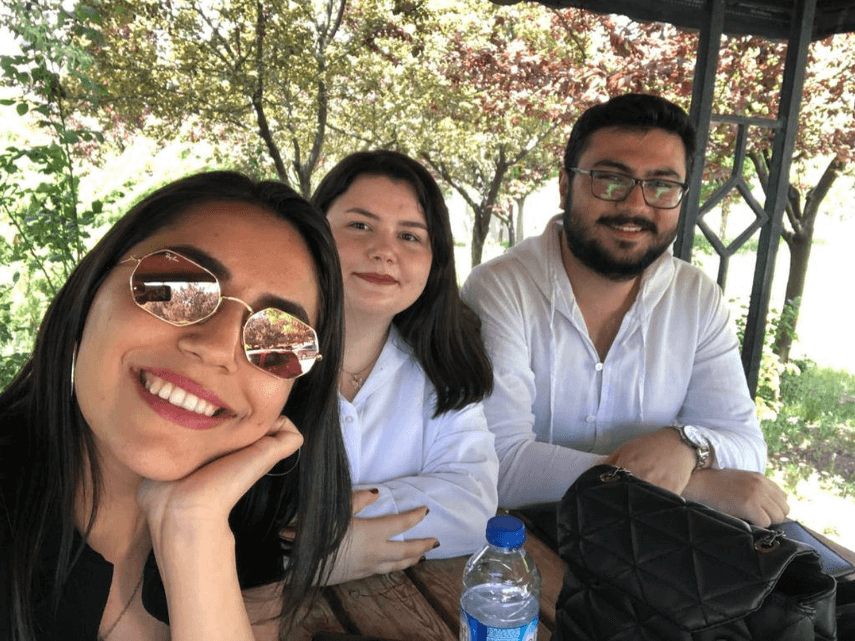
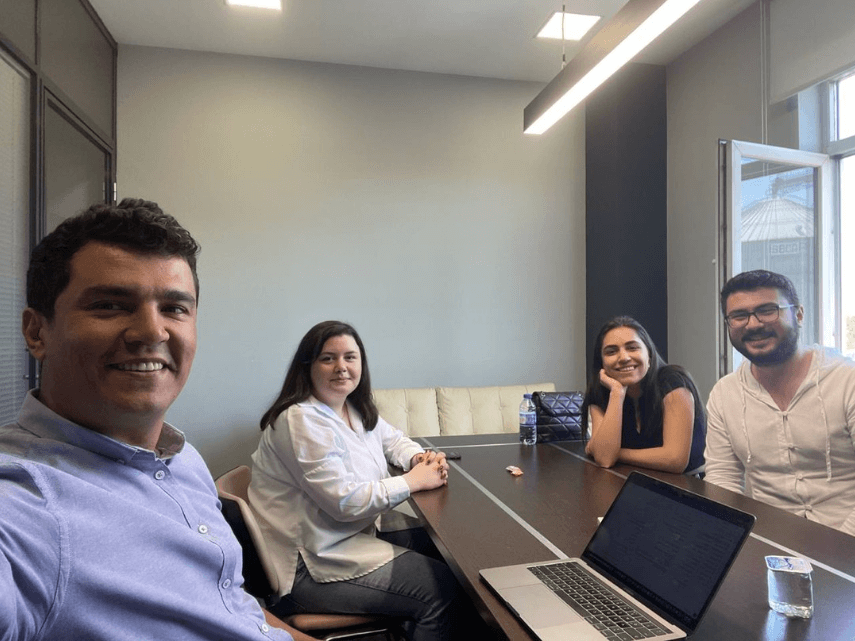
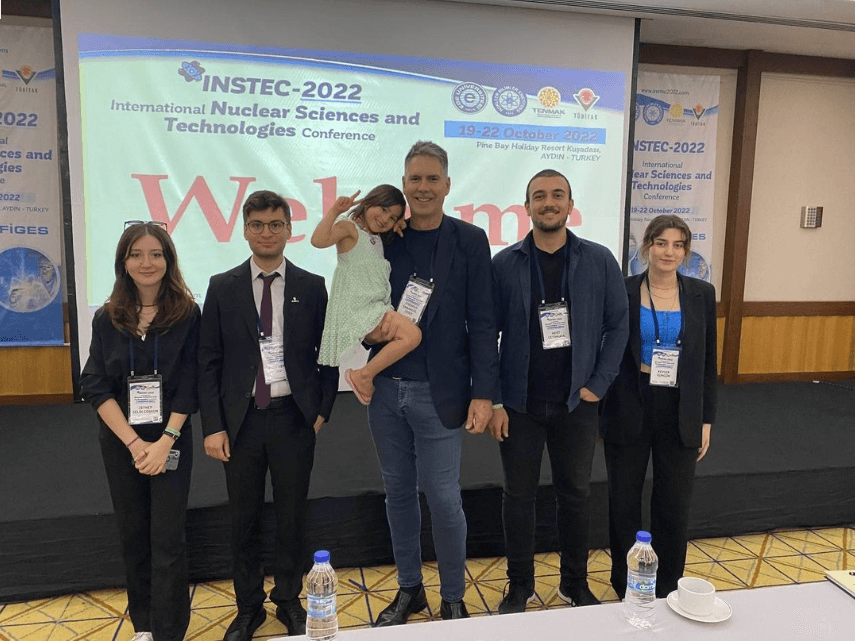
Formation of ThorAtom and Legacy
Capping off Mr. Josey’s extensive efforts in Türkiye was the recent formation of ThorAtom, led by distinguished and respected Turkish engineers Dr. Tarık Öğüt and Dr. Reşat Uzmen. This milestone consolidates years of partnership-building, research coordination, and strategic planning spearheaded by Mr. Josey and The Thorium Network.
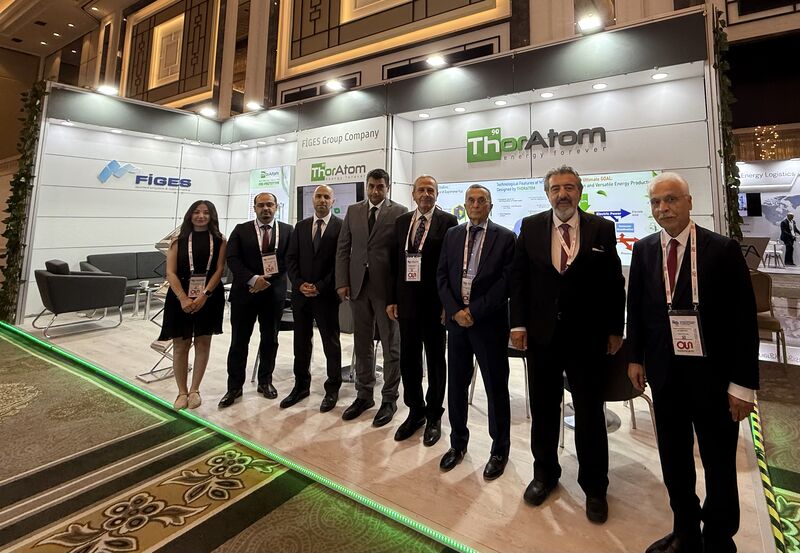
Moving Forward with Thorium
As Türkiye continues to advance its Thorium energy ambitions, TheThorium.Network remains committed to fostering international collaboration, providing strategic expertise, and supporting innovative partnerships. Organizations, governments, and academic institutions interested in accelerating Thorium development are encouraged to connect with The Thorium Network to explore tailored solutions and collaborative opportunities. Through respectful partnership and shared vision, we can unlock the full potential of clean, sustainable nuclear energy for a safer and greener future.
To begin a conversation and learn more about how The Thorium Network can support your Thorium initiatives, please reach out to us via SAFE Fission Consult™.
Key Takeaways
- Jeremiah Josey has been instrumental in linking Türkiye’s national Thorium initiatives with global expertise and collaboration.
- Early and ongoing engagement with institutions like TENMAK and ETİ Maden has helped advance Türkiye’s Thorium research and resource management.
- Partnerships with universities such as Hacettepe and Sinop University have strengthened academic foundations for Thorium technology development.
- Diplomatic facilitation revitalised the Türkiye-Japan University initiative, promoting knowledge exchange and nuclear technology collaboration.
- Site visits and engagements with Japanese companies contributed to understanding infrastructure and international cooperation opportunities.
- Technical input and collaboration with NATEN have supported advanced Thorium separation techniques critical to efficient fuel cycle progress.
- Participation in the European Union’s SAMVAR project aligns Türkiye’s Thorium research with pioneering European nuclear innovations.
- The Turkish Thorium Student Guild, founded by Josey, nurtures the next generation of nuclear scientists through mentorship, funding, and conference participation.
- The recent formation of ThorAtom consolidates years of partnership-building and research coordination driven by Josey and The Thorium Network.
- The Thorium Network offers expertise and a collaborative platform for organisations and countries seeking to accelerate sustainable Thorium energy development.
References
- Official letter from TENMAK (the Turkish Energy, Nuclear and Mineral Research Agency) to Jeremiah Josey dated 19 November 2021, acknowledging collaboration and advisory work on Thorium development initiatives. Available from The Thorium Network and TENMAK archives.
- The Thorium Network – Company website detailing mission, projects, and team leadership including founder Jeremiah Josey. https://TheThorium.Network
- ETİ Maden – Turkish state enterprise managing Thorium mineral resources, one of the largest reserves globally, located in Türkiye. Government resource information: https://www.enerji.gov.tr/info-banknatural-resourcesthorium
- Information on FİGES A.Ş., a Turkish R&D organisation specialising in applied engineering and Thorium-related technology collaborations. https://figes.com.tr/en/who-we-are/affiliates/thoratom
- ThorAtom – Turkish nuclear technology company established in 2023, led by Turkish nuclear experts Dr. Tarık Öğüt and Dr. Reşat Uzmen. https://thoratom.com
- Türkiye–Japan University initiative – Bilateral academic and nuclear technology cooperation revitalised through diplomatic efforts including a key meeting arranged between senior Türkiye officials and the Japanese ambassador.
- YouTube video – Conference organised by Jeremiah Josey featuring joint scientific discussion between Turkish and Japanese researchers on Thorium technology: https://www.youtube.com/watch?v=NEDK_MAWQD0
- Article inspired by Türkiye-Japan Thorium sector collaboration and conferences, hosted by The Thorium Network: https://thethorium.network/the-secret-to-success-in-this-sector-is-to-be-passionate/
- The EU SAMVAR Project – European research collaboration on advanced nuclear fuel cycles and reactor concepts, with active participation from Türkiye facilitated by Jeremiah Josey in cooperation with Professor Elsa Merle. Information available via SAMVAR consortium publications and related EU research portals.
- TENMAK Institutional Archive – Official repository containing research reports on Thorium reserves, nuclear technology development, and strategic plans for Thorium utilisation in Türkiye: https://kurumsalarsiv.tenmak.gov.tr/handle/20.500.12878/1293?locale=en
- Jeremiah Josey’s presentations and interviews on Thorium technology, blockchain applications in nuclear energy, and project vision shared at various conferences, including Digitalks Brazil 2020: youtube.com (search ‘Jeremiah Josey Thorium Network’)
- Historical geological data on Thorium reserves in Türkiye, including Eskişehir-Sivrihisar, Malatya-Kuluncak, and Beylikova areas, from Turkish mineral surveys and international databases.
- Details on TENMAK’s formation and role as a unified research organisation focused on nuclear and mineral resources in Türkiye, including Thorium and related technologies.
- NATEN, https://stip.oecd.org/stip/interactive-dashboards/policy-initiatives/2023%2Fdata%2FpolicyInitiatives%2F99992379
